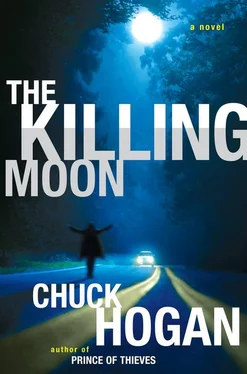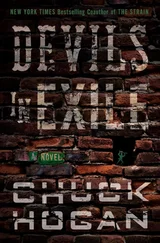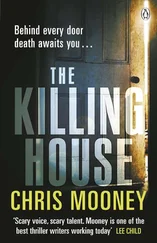The thing he always started off telling them, which was not a story per se but rather an operating principle, and which happened to be absolutely true, was that every case he worked was essentially the same. Every unattended death was the Case of the Broken Vase. A body, or traces of it, lay broken on the floor. Most of the pieces were right there, and his job was to reassemble what he found, then track down the rest. By the time he had the vase glued together well enough to hold water again, he usually knew who had knocked it over and how, and whether its shattering had been an act of carelessness or calculation.
Here Hess had a vase that would not come together. He could stand a flower in it — Dillon Sinclair — but water kept spurting out on all sides. Now was the time to start looking more closely at the people he had handling the pieces for him, making certain they were reconstructing this thing the correct way.
His mistake all along had been in pretending to treat the locals like cops. They were more like informants and that was how he decided to approach the Black Falls PD now. Hess had come upon a significant chunk of vase, and he wanted to see firsthand how they processed it.
He went out to bring them in from the front room of the station. Bucky Pail was sitting on the floor, falling asleep with his cap in his hands. Maddox stood apart, looking out the front window at the academy trainees milling about the lawn, dressed in their spiffy blue shirts, navy Dickies, and regulation boots, swigging water while they waited for the school buses to return them to New Braintree. But the faraway look on Maddox’s face was more like something you’d see on a man standing at the edge of an ocean.
So maybe he did have aspirations after all. From what Hess had been able to learn about him, hiring on to any real police force would be a tough sell. A trip through Maddox’s tax returns going back ten years — highly unauthorized, another favor called in — showed fringe-type jobs, low-wage, nothing steady. W-2s from all over: a roofer, a mover, a landscaper, a pool cleaner. Short stints as a bartender in three different parts of the state; a car wash in Lowell; Domino’s pizza delivery in Taunton and Brockton; cab driving in West Springfield; road painting in Fall River. He had worked as an asbestos stripper in Worcester and in the boiler room of a Cape Cod high school. The only tie-and-shoes job he’d held was as a stereo and TV salesman, and only for three months.
To Hess, it read like someone who was hiding, or even halfway on the run. Maddox’s name also popped up as a reference/co-signee on bail bonds for three different people, two of them arrested on drug charges — one simple Class B possession, third offense, one for Class A possession with intent to distribute — and one for breaking and entering with intent to commit a felony, as well as, in the Commonwealth’s parlance, “possession of burglarious tools.” But no arrests himself — which Hess already knew, given that Maddox had been cleared on a Criminal Offender Record Information search before getting hired on as a cop, and had passed the routine background check that went along with his gun license application.
Still, it was a very unusual résumé for a part-time cop. What it showed Hess was that Maddox was a washout, like most of the lost souls in this town. He wanted to grill Maddox about his background, make him squirm a little, but had decided to hold on to that card awhile longer. Sweating Maddox, though potentially quite pleasurable, was not the point. At least not yet.
Pail too had clouds circling about his head. The assault charge against Sinclair, obviously, but there were other whispers: abuses of power, sexual transgressions, even an alleged indecent assault right here inside the station. Other charges brought against him along the way — exposing himself to a female motorist, simulating masturbation in front of another — had all been quickly dropped, reeking of intimidation and witness tampering.
And then there was the case of Hugo Ibbits. A California fugitive stopped for speeding in Black Falls, he was first said to have been arrested and jailed by Pail, but then, after his death three nights later in a fiery car crash in the hills above town, the story changed. The death was briefly investigated by the U.S. Marshals office, which has jurisdiction over fugitives, but later dropped without a finding. This was before Pail got caught beating a handcuffed Sinclair during a traffic stop up in those same hills.
Inside the reports room, Hess took up a position at an angle from the laptop so that he could observe the two cops’ reactions. Bryson sat before the screen.
“We found Sinclair’s camera,” Hess announced, “half buried under leaves in the Borderlands. CSS took a biopsy of the forest, digging up everything within two cubic feet of the find, all of which they are currently processing. The memory card was installed and intact. Seventy-nine images, of which we have here a quick DVD burn. A privileged peek at a sliver of Sinclair’s own memory. And, no surprise, it gets pretty fucking weird.”
Bryson worked the touch pad, starting the slide show in reverse order, from the most recent images back to the oldest.
The first sequence of pictures were dark, taken at night and without a flash. Tough to make out anything at first. Hess had needed four or five passes in order to see it clearly himself.
The photographs had been taken through a window: that much was evident. Part of the silver casing of the camera was visible in some shots, reflected in the moonlit glass, if you looked for it. The subject of each of the first six images was a boy lying on his belly, asleep in a bed with his arms tucked under him, the covers kicked away. Spiderman pajamas, the waistband of his underpants showing above the top of red and blue shorts. A match head of bright orange hair.
Bryson paused the slide show there. Hess watched Bucky squint, still trying to see what was on the screen.
Maddox stared heatedly, looking spooked. “One of the Heavey boys,” he said.
“Heavey,” said Hess, “being the guy who found footprints behind his house. Who saw someone he thought was a woman running off into the trees.”
Bucky saw it now. “What the fuck. ”
Maddox’s mouth tightened. Bryson worked the mouse to resume the slide show.
There followed images taken through a different window, of a different young boy in another bed, this one blond and sleeping only in his underwear. The images were nearly identical, taken in rapid succession.
“There,” said Hess.
Bryson stayed on the image. Hess’s eyes stayed on the cops.
It took them a moment to see what was different. The camera was positioned farther back from the window glass. In the reflection, visible behind and around the silver camera, was a hand. A forefinger on the shutter release. And, to the side of that, long, straight strands of black hair.
And — just barely on the other side — a closed eye winking beneath a hairless brow.
“Fuckin’ freak, ” said Bucky, leaning forward to see. His upper lip curled back like he could smell Sinclair.
Maddox’s brow dropped low over his eyes.
More pictures flashed, most of them peeping shots of young boys asleep in their beds, though not all. One artsy image showed a deer crossing Main Street at dawn, snapped from the vantage point of Sinclair’s second-story balcony. Another one Hess waited for was an early-morning shot from the same perch, looking down on the roof of a car turning the corner. A patrol car. The unit number was eight.
Bucky looked fast at Maddox. “That’s him,” he said to Hess. “That’s Maddox’s car.”
Maddox’s surprise was pure and convincing.
Bucky stared at Maddox as though he was owed an answer.
Читать дальше












